Times have changed. Cloud collaboration solutions have replaced desktop software, critical information is more easily accessible, and global teams and agencies can manage projects in real time.
Get Started for FREE
Sign up with Facebook Sign up with X
I don't have a Facebook or a X account

 Your new post is loading... Your new post is loading...
 Your new post is loading... Your new post is loading...

luiy's curator insight,
February 10, 2014 8:49 AM
People work together well when the flexible framework of working groups accommodates their natural inclination to co-operate within the context of a big vision. They are a testament to our determination to stand up against disempowerment. We realise a greater autonomy when we work together in co-operative engagement inspired by our desire for freedom. This, to me, is the power of Working Groups. 
MyKLogica's curator insight,
February 18, 2014 2:05 PM
Cuando el fenómeno de la holacracia se extiende a la sociedad. 
Ali Anani's curator insight,
February 24, 2014 12:50 AM
Self-organizing or controlling? Which do you see fitter?

Miguel Angel Perez Alvarez's curator insight,
January 14, 2014 2:14 PM
Inteligencia colectiva, evolución 
Deb Nystrom, REVELN's curator insight,
January 31, 2014 11:18 PM
Cyberspace big thoughts, and perhaps indicating a fusion or an evolution of knowledge management in a group space. |

luiy's curator insight,
April 30, 2014 1:16 PM
Inteligencia colectiva y colaboración inconsciente De las cosas que más me han sorprendido del enfoque del MIT-CCI es su intento de analizar y medir la Inteligencia Colectiva en situaciones donde los miembros de un equipo no son conscientes de que están colaborando entre sí. Esta dimensión “inconsciente” de la IC me atrae, y complementa extraordinariamente el de la colaboración activa y voluntaria. Peter afirma que el sentido de pertenencia a un grupo o colectivo no tiene que estar presente siempre en estos procesos de crecimiento colectivo. Más que un sentido (consciente) de pertenencia, se produce un tipo de nexo que dispara la inteligencia colectiva. Unos contribuyen a otros a veces sin saberlo, y ese fenómeno merece un estudio más a fondo.

Miguel Angel Perez Alvarez's curator insight,
January 14, 2014 2:14 PM
Inteligencia colectiva, evolución 
Deb Nystrom, REVELN's curator insight,
January 31, 2014 11:18 PM
Cyberspace big thoughts, and perhaps indicating a fusion or an evolution of knowledge management in a group space.

Beth Kanter's comment,
December 20, 2011 7:34 PM
Thanks for sharing this from Robin's stream. These skills sets could form the basis of a self-assessment for would-be curators, although they're more conceptual - than practical/tactical. Thanks for sharing and must go rescoop it with a credit you and Robin of course

janlgordon's comment,
December 20, 2011 7:56 PM
Beth Kanter
Agreed. It's also one of the articles I told you about....good info to build on:-) |



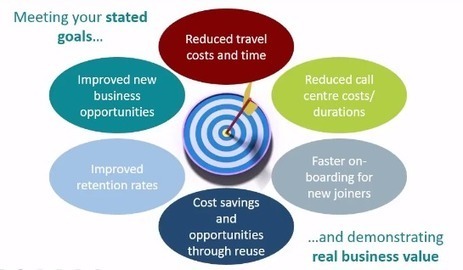



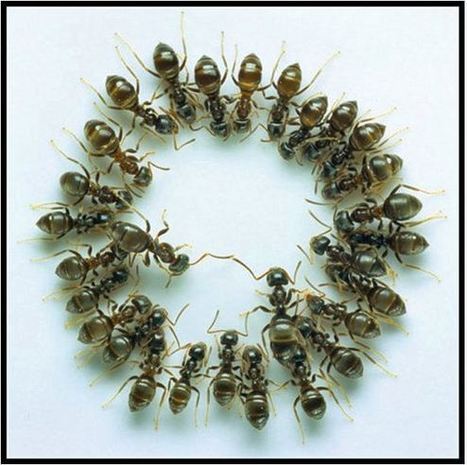


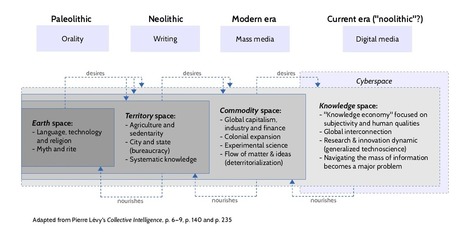

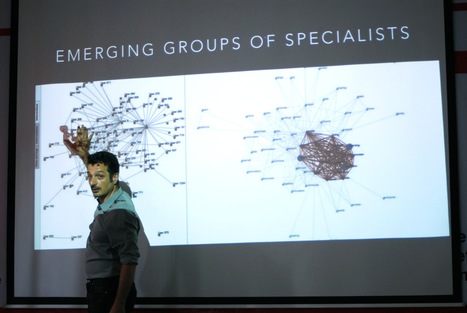

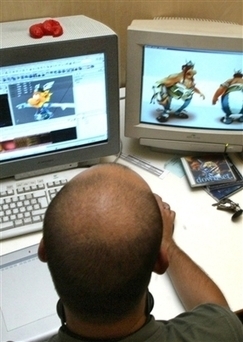
![Curating Information & Making Sense of Data Is a Key Skill for the Future [Research] | E-Learning-Inclusivo (Mashup) | Scoop.it](https://img.scoop.it/KrkxRVnH-00QDsqHCUKTTTl72eJkfbmt4t8yenImKBVvK0kTmF0xjctABnaLJIm9)




